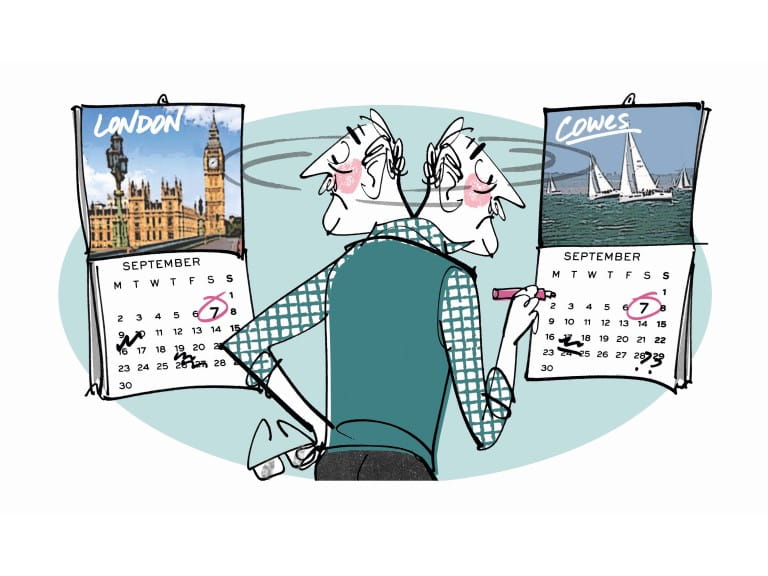The pothole plague: the worst places in the UK for roads and how to avoid any damage
The cost of repairing cars damaged by potholes has hit a record high. We list the worst places to drive and what’s being done about them.

The cost of repairing cars damaged by potholes has hit a record high. We list the worst places to drive and what’s being done about them.

It’s been dubbed the pothole plague. Britain’s roads are in a worse state than ever, full of damaged surfaces that can catch out unsuspecting motorists.
The RAC estimates that there are more than one million potholes across the UK – that’s an average of six per mile on council-maintained roads.
The AA, meanwhile, says that last year the repair bill for cars damaged by potholes was £579m – the highest total on record.
In response the Government is investing £1.6 billion to tackle the problem by the end of 2026, but last winter’s cold and wet weather has made the situation worse before it can get better.
The RAC says pothole related callouts are already up 9% this year. The organisation’s head of policy Simon Williams says “Although English councils received a record amount of funding for roads at the start of the new financial year in April, it’s too early to notice the benefit of increased maintenance programmes."
Looking to buy or sell a car?
The experts at Saga Money have got you covered.
Get tips on buying a car online, or selling a car safely, and how to avoid the risks.
“We can clearly see the cold winter weather at the start of the year has left its mark and caused an ‘unseasonable high’ in breakdown volumes during a quarter when we’d typically expect a reprieve.”
Warmer weather doesn’t help much – the AA blamed the hot weather in July for a spike in call outs caused by bad road surfaces.
Re-flow Field Management has used Department of Transport data to identify the areas with the worst road surfaces in England.
Bottom of the table is West Northamptonshire with just 24.5% of its A roads and motorways and 9.5% of its B and C roads being in good condition.
Derbyshire is second worse with 35.2% of its A roads and motorways and 25.2% of its B and C roads in good condition.
Even Westminster, the one district you’d expect to have unimpeachable tarmac, makes the top ten with just 12% of its B and C roads in good condition.
On the flip side, drivers in the north-east of England have cause to cheer as just 1% of Sunderland’s roads are in a poor condition.
What about Scotland, Northern Ireland, and Wales? Road maintenance is a devolved responsibility in Wales, Scotland, and Northern Ireland.

Potholes are primarily formed by water that’s seeped into the road freezing in the winter. The water then expands and contracts through the freeze/thaw cycle, which breaks up the road surface.
Heavy traffic can also damage the road surface, as can poor maintenance, bad drainage that allows water to collect in one place, and, of course, high temperatures like those we’ve had this summer, which can soften the tarmac.
Weirdly, no, there isn’t.
However, Bhavin Makwana, writing for the RAC Foundation in 2018, suggests that one-in-five Local Highway Authorities start to show an interest when a hole in the road reaches 20-30mm in depth. However, 26 local authorities, or 14%, will only show an interest once it is 50mm deep.
On the other hand, 12 local authorities said that even the “most minor blemish would be investigated and treated if deemed a risk”.
The government is releasing an extra £1.6 billion to help fix the problem, but the government’s own report says: “[The Pothole Fund] is not viewed as ‘additional’ funding per se, but rather as a reallocation of, or replacement for, reduced capital and revenue funding overall.”
As Ashley Wing, CMO of Re-flow Field Management, puts it: “These findings come at a crucial time when local authorities are making difficult budget decisions”.
Find out about the latest car parking scams, and how to protect yourself from them.
The English council with the worst road surfaces, West Northamptonshire Council has already committed to a substantial £100 million capital investment for the 2025/26 period, rising to £155 million over the next four years. While second-worst Derbyshire has pledged a £41 million investment in 2025/6.
The Local Councils Roads Innovation Group (“a unique platform for members to actively participate in the continuous improvement of local roads”) highlights Blackpool Council’s Project Amber scheme, which uses an “advanced imagery system” to take high-definition photos of the road surface that allows engineers to prioritise repairs.
Louise Haigh, the transport secretary, is full of praise: “Blackpool Council are already doing fantastic work to make the most of new technology to repair potholes faster.
“This should be a model for every community to learn from and help deliver the roads their drivers deserve, so that Britain can get moving.”
Blackpool used to pay up to £1.5 million a year to settle claims for pothole damage. In 2023 it paid out just £719.

The simple answer is you should always be able to stop within the limits of your visibility, leaving you time to slow down and drive around a pothole if it is safe to do so.
However, if the road is narrow and/or there is oncoming traffic you may not be able to do this. Nor will you be able to spot one if it is dark or filled with water.
And low-profile tyres aggravate the problem. In the old days a deep sidewall could absorb an impact, but modern tyres leave nowhere for the shock to be dissipated other than through your expensive alloy wheel.
This is just one of the many reasons why it is important to keep your tyres inflated to the correct pressure.
If you exclude simple punctures, the RAC puts the cost of repairing pothole damage at an average of £460 per car.
It means many drivers turn to their insurance to cover the cost.
Saga insurance experts have all the information on making a claim for pothole damage, including how to spot the signs of pothole-damage.
Carlton gave up being a prison governor to become a freelance motoring journalist six years ago, and now earns his living travelling the world driving, photographing and writing about cars. He’s also previously worked as a lumberjack, police officer, retail manager, breakfast chef, and smallholder, allowing him to write about more than just cars.
View author page

Choose our highest car cover level Saga Plus and freeze the price of your car insurance for 2 years if nothing changes. T&Cs apply.

Reports of a scam involving fake QR codes stuck on parking machines are still hitting the headlines, but how widespread is it - and how can you avoid falling foul?




Women in the intelligence services did more than just take notes and chide flirtatious spies - many had real power and ran missions.


Anne Robinson on what to say when you read a friend's book and it's terrible.

Anne Robinson helps a man who thinks his life doesn't feel important after retirement, and asks how to find purpose again.

Dr Miriam Stoppard advises a widow on how to navigate modern dating etiquette and broaching the subject with her grown-up children.

Our columnist on the challenge of making a will and whether we should instead be spending our money on ourselves.




Self-publishing is becoming popular among older authors who want more creative control – and a bigger slice of the profits.
